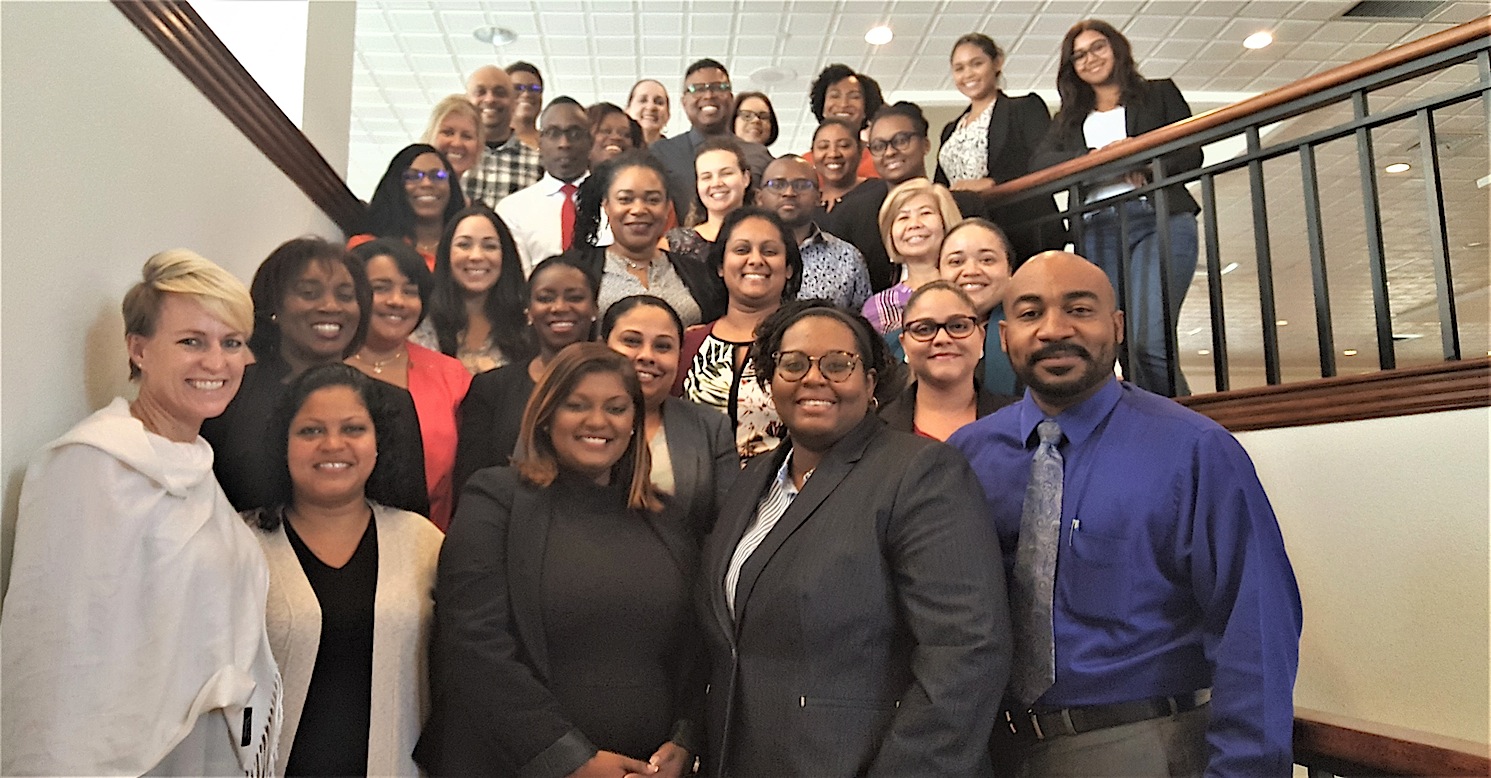Cayman’s Supervisors receive specialised AML/CFT training

Attorneys Regulatory Authority, Cayman Islands Institute of Professional Accountants, Department of Commerce and Investment, Registrar of Companies, and Anti-Money Laundering Unit attended specialised training on anti-money laundering and countering the financing of terrorism. Held 8-10 January 2020 at the Grand Cayman Marriott Beach Resort, the training was led by Ms Glenda Leben, Supervision Advisor for the CFATF (Caribbean Financial Action Task Force).
Recognising the importance of effective regulatory supervision for financial services and other designated businesses and professions, the Cayman Islands Government recently organised a training session on assessing and monitoring AML/CFT (anti-money laundering and countering the financing of terrorism) compliance.
The training, held 8-10 January 2020 at the Grand Cayman Marriott Beach Resort, was led by Ms Glenda Leben, Supervision Advisor for the CFATF (Caribbean Financial Action Task Force). The training was organised by Cayman’s Anti-Money Laundering Unit (AMLU).
Ms Leben began the training with an overview of key definitions (money laundering, terrorist financing, proliferation financing), as well as the roles and functions of the Financial Actions Task Force (FATF) and the CFATF. She also provided an overview of the FATF 40 Recommendations and their connections with FATF Immediate Outcome 3, related to the effectiveness of AML/CFT supervision.
“Out of the 11 (Immediate Outcomes for Effectiveness of AML/CFT Systems), Immediate Outcome 3 focuses on supervision and how AML/CFT supervisors may be able to use this information to facilitate and enhance their approach to risk-based supervision,” Ms Leben reminded the group.
She also noted, “Immediate Outcome 3 requires supervisors to appropriately supervise, monitor, and regulate financial services and DNFBPs – designated non-financial businesses and professions – for their compliance with AML/CFT requirements. And this compliance is to be in line with their respective risk profiles.”
DNFBPs include lawyers, accountants, realtors, dealers in precious metals and stones, and trust and company service providers.
The training concluded with a simulation on how to incorporate risk profiles during supervision exercises for financial services and DNFBPs.
Ms Leben has extensive experience in financial services and regulatory compliance, including AML/CFT. She is also a Certified Anti-Money Laundering Specialist.
Anti-money laundering staff from the Cayman Islands Monetary Authority; Cayman Attorneys Regulatory Authority; Cayman Islands Institute of Professional Accountants; Department of Commerce and Investment; Registrar of Companies; and AMLU attended the training.
Cayman’s AML/CFT regime is headed by the Attorney General, the Hon. Samuel Bulgin, QC, who told attendees that supervisors’ roles in the global fight against these financial crimes cannot be overstated.
“The supervisor is the preventative axis in this entire endeavour, hence the importance and timeliness of this training,” he said during his opening remarks for the sessions.
He thanked the governments of the UK and Canada for funding the CFATF training, and he encouraged continued collaboration among Cayman’s supervisors. He also thanked the CFATF and Ms Leben in particular for facilitating the training.
The Methodology for Assessing Compliance with the FATF Recommendations and the Effectiveness of AML/CFT Systems is the global standard for AML/CFT, while the CFATF assesses and monitors compliance with the recommendations in the Caribbean region. ###




